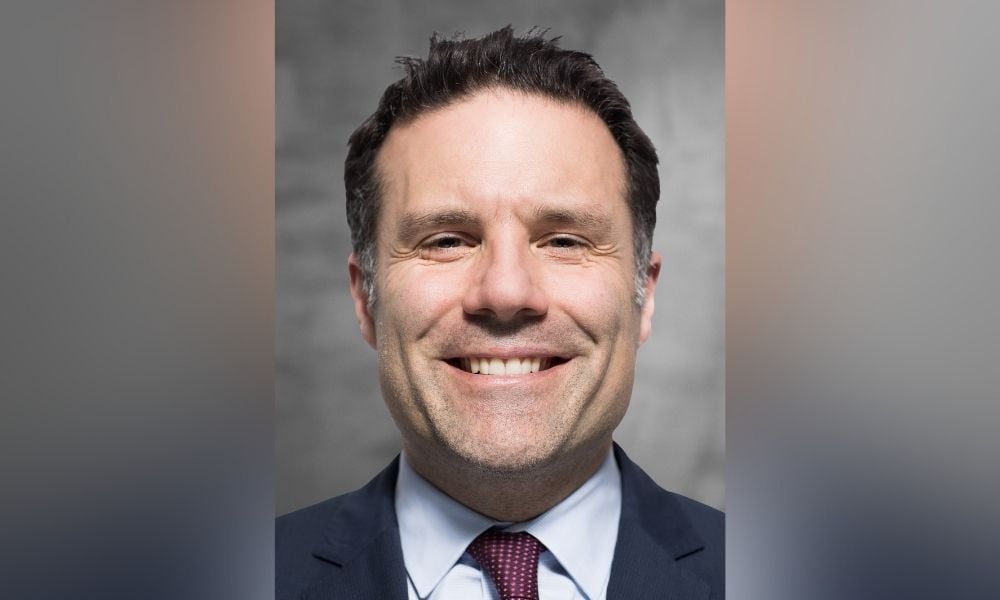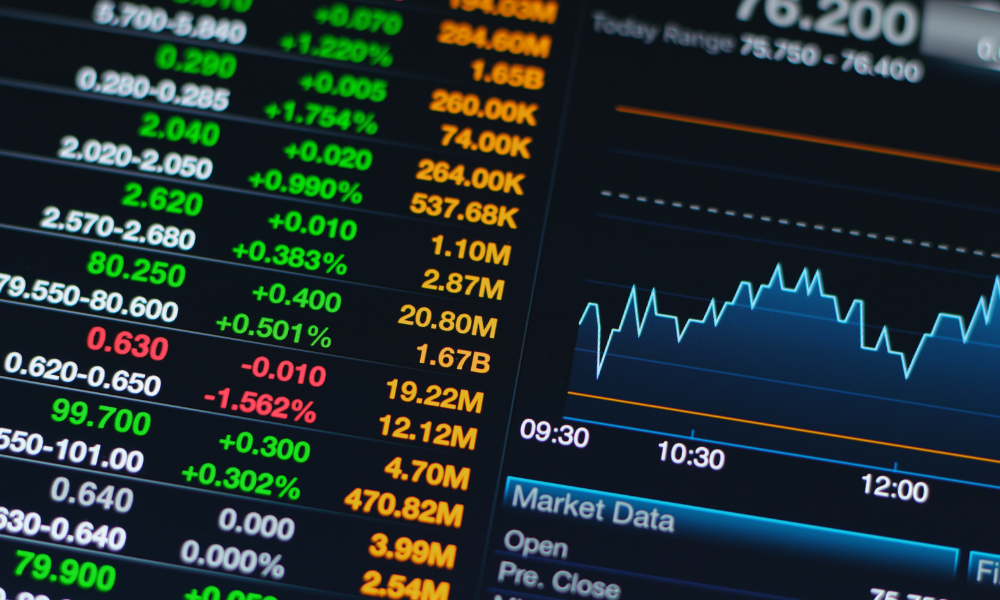Are you part of the problem or the solution? Patrick Blais, Senior Portfolio Manager at Manulife Investment Management, on how to align your investments with the Paris Agreement targets

This article was produced in partnership with Manulife Investment Management.
The urgent need to reduce global temperatures has, ironically, never been such a hot topic. The Paris Agreement painted a vivid picture of the worst impacts of climate change in explaining why temperatures need to be limited to 1.5 degrees above pre-industrial levels. To do this, greenhouse gas emissions need to be reduced by 45% by 2030 and reach net zero by 2050.
Patrick Blais, Senior Managing Director and Senior Portfolio Manager, Head of the Fundamental Equity Team at Manulife Investment Management, believes setting such concrete objectives is the solution to curbing carbon emissions. He says the devastating impact of extreme weather, displacement due to floods, or loss of certain natural habitats or species, for example, is a high price for society to pay.
“The Paris Agreement is a solid framework and solid path,” Blais adds, “but one which requires action, strength and will as a society in various countries to move forward on.”
Certain sectors hold the key to achieving this, in particular energy. By “taking the temperature” of a portfolio or fund, advisors can see how well aligned companies are to net-zero targets. Put simply, in order for many businesses to be sustainable and survive, they need to decarbonize. The stark reality, in our view, is that this will not be done by new green technologies but by carbon-intensive companies that can reduce existing emissions.
Taking a temperature gauge of your investments does not credit companies for what they’re doing today but for the actions they’re going to take to align with the Paris Agreement. We believe that by using the right technology, combined with science-based targets, one can get an aggregate temperature of a fund or a portfolio.
Blais said: “In our view, this identifies those companies that are aligning themselves to have a temperature impact of at most 1.5 degrees and enables investors to build portfolios that are striving to reach that objective by prioritizing those that are doing their part.”
Companies who align effectively also gain a competitive advantage as various markets and regulators move to address the climate-change problem. Consumers are also voting via their purchases while, for example, certain transportation methods like rail are being favoured because of its low carbon intensity. For investors, they should perhaps be mindful of the opportunities this presents, rather than simply deploying risk-aversion tactics.
This can not only expose them to new markets that take advantage of the long-term trend towards net zero, but could also enhance portfolio returns. There are Paris-aligned indices from the MSCI that show competitive returns relative to the broader benchmarks1 and Blais believes this speaks to companies aligning themselves with where society is headed and benefiting from that exposure.
“Those companies that have taken action to align their businesses [with the Paris goals], have probably developed better sustainable businesses that limits downside risk,” he explains. “In certain instances, it also exposes them to new markets, and allows them to build market share because of their lower carbon intensity.”
He adds: “We don't think that having a Paris-aligned portfolio necessarily means exposing yourself to low-return prospects. As long as, from an investment point of view, you perform your traditional fundamental analysis, marry it with a strong climate assessment, and identify those companies that are positioned for a Paris-aligned world, you can continue to deliver performance while positioning the fund for values that a number of investors are looking for.”
Given Manulife’s scale and research capabilities, it has strong views on the steps that companies can take to put their business on a more sustainable footing. These are the discussions Blais, and his colleagues regularly have with firms, and he says most are open to hearing from their shareholders, especially when it's backed by strong research.
If the message does not hit home, the next step might be a letter to the board that goes beyond management. Then there is proxy voting, which carries significant weight, or as a last resort, divestment.
“Companies very often are receptive,” Blais explains. “We can point to many times where companies, after discussions, have taken things on like adopting base targets, and part of the reason for that has come through investor engagement, probing and pushing.”
While the Paris targets have crystalized things for many, Blais says the regulatory framework is still lagging behind what needs to be done, whether its the broad-based application of the rules, their intensity, or how much of it is under regulatory purview.
He warns that everyone needs to play their part and investors can be part of the solution by having a strong commitment to addressing climate issues and influencing companies’ plans. A strong science-based target initiative is now in place, he adds, but it needs total buy-in.
“As investors, we can be part of that solution, hand in hand with regulators. And we think [the Paris Agreement targets] are striving for a more sustainable society and economy, and really puts us on the right path.”
Learn about how Manulife Investment Management’s climate-themed investment fund, Manulife Climate Action Fund, uses the Paris Agreement as a framework to align investment decisions with climate data.
1 Source: Climate Paris Aligned Indexes - MSCI
Sponsored by Manulife Investment Management, as of April 2022.
The views expressed are those of Manulife Investment Management and are subject to change as market and other conditions warrant.
We consider that the integration of sustainability risks in the decision-making process is an important element in determining long-term performance outcomes and is an effective risk mitigation technique. Our approach to sustainability provides a flexible framework that supports implementation across different asset classes and investment teams. While we believe that sustainable investing will lead to better long-term investment outcomes, there is no guarantee that sustainable investing will ensure better returns in the longer term. In particular, by limiting the range of investable assets through the exclusionary framework, positive screening and thematic investment, we may forego the opportunity to invest in an investment which we otherwise believe likely to outperform over time.
Information about a portfolio's holdings, asset allocation, or country diversification is historical and is no indication of future portfolio composition, which will vary. Please read the fund facts as well as the prospectus before investing. The indicated rates of return are the historical annual compounded total returns including changes in unit value and reinvestment of all distributions and does not take into account sales, redemption, distribution or optional charges or income taxes payable by any securityholder that would have reduced returns. Mutual funds are not guaranteed, their values change frequently and past performance may not be repeated. Past performance is not indicative of further returns. Certain research and information about specific holdings in the Fund, including any opinion, is based on various sources believed to be reliable. All overviews and commentary are for information purposes only and are not intended to provide specific financial, investment, tax, legal, accounting or other advice and should not be relied upon in that regard. This material was prepared solely for informational purposes, does not constitute an offer or an invitation by or on behalf of Manulife Investment Management to any person to buy or sell any security and is no indication of trading intent in any fund or account managed by Manulife Investment Management.
Commissions, trailing commissions, management fees and expenses all may be associated with mutual fund investments. Please read the fund facts as well as the prospectus before investing. Mutual funds are not guaranteed, their values change frequently, and past performance may not be repeated.



